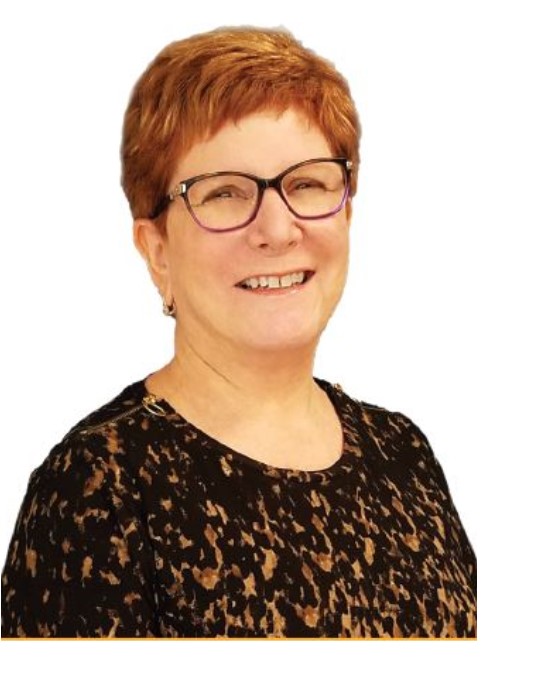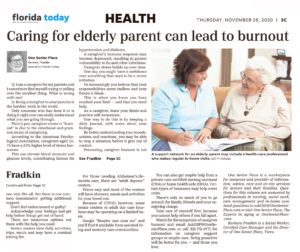
 Barbara Fradkin – Special to FLORIDA TODAY
Barbara Fradkin – Special to FLORIDA TODAY
Reader question: I am a caregiver for my parents and I sometimes find myself crying or yelling over the smallest thing. What is wrong with me?
Answer: Being a caregiver to your parents is the hardest work in the world.
 Only someone who has done it or is doing it right now can really understand what you are going through.
Only someone who has done it or is doing it right now can really understand what you are going through.
Plainly put, caregiver stress or “burnout” is due to the emotional and physical strain of caregiving.
According to the American Psychological Association, caregivers aged 55-75 have a 23% higher level of stress hormones.
This can elevate blood pressure and glucose levels, contributing factors for hypertension and diabetes.
A caregiver’s immune response may become depressed, resulting in greater vulnerability to flu and other infections.
Caregiver stress builds up over time.
One day you might have a meltdown over something that used to be a minor irritation.
Or increasingly you believe that your responsibilities seem endless and your future is bleak.
This is when you know you have reached your limit — and that you need help.
As a caregiver, learn your limits and practice self-awareness.
One way to do this is by keeping a daily journal, with notes about your feelings.
By better understanding your moods, actions and reactions, you may be able to stop a situation before it gets out of control.
Preventing caregiver burnout is not one-size-fits-all. But there is one common denominator: getting additional support.
Don’t feel embarrassed or guilty!
Acknowledge your feelings and get help before things get out of hand.
There are numerous options out there with the help you need.
Senior centers have daily activities, trips, meals and may have a nominal joining fee.
For those needing Alzheimer’s/dementia care, there are “adult daycare” centers.
Prices vary and most of the centers will have showers, meals and activities for your loved one.
Because of COVID, however, some senior centers or adult day care locations may be operating on a limited basis.
Google “Respite care near me” and you’ll find it available from assisted living and memory care communities.
You can also get respite help from a private care certified nursing assistant (CNA) or home health aide (HHA). Certain types of insurance may help cover costs.
There’s only so much of you to go around; for family, friends and your caregiving charge.
Take care of yourself first, because you cannot help others if you fall apart.
Watch for the symptoms of caregiver burnout and email AskOSP@OneSeniorPlace.com or call 321-751-6771 for information on caregiver support groups or respite care. Being proactive will be better for you — and those you love.
One Senior Place is a marketplace for resources and provider of information, advice, care and on-site services for seniors and their families. Questions for this column are answered by professionals in nursing, social work, care management and in-home care. To submit a question, send an email to askOSP@OneSeniorPlace.com or visit One Senior Place, The Experts in Aging at OneSeniorPlace.com.
Barbara Fradkin is a Social Worker, Certified Care Manager and the Director for One Senior Place, Viera.


